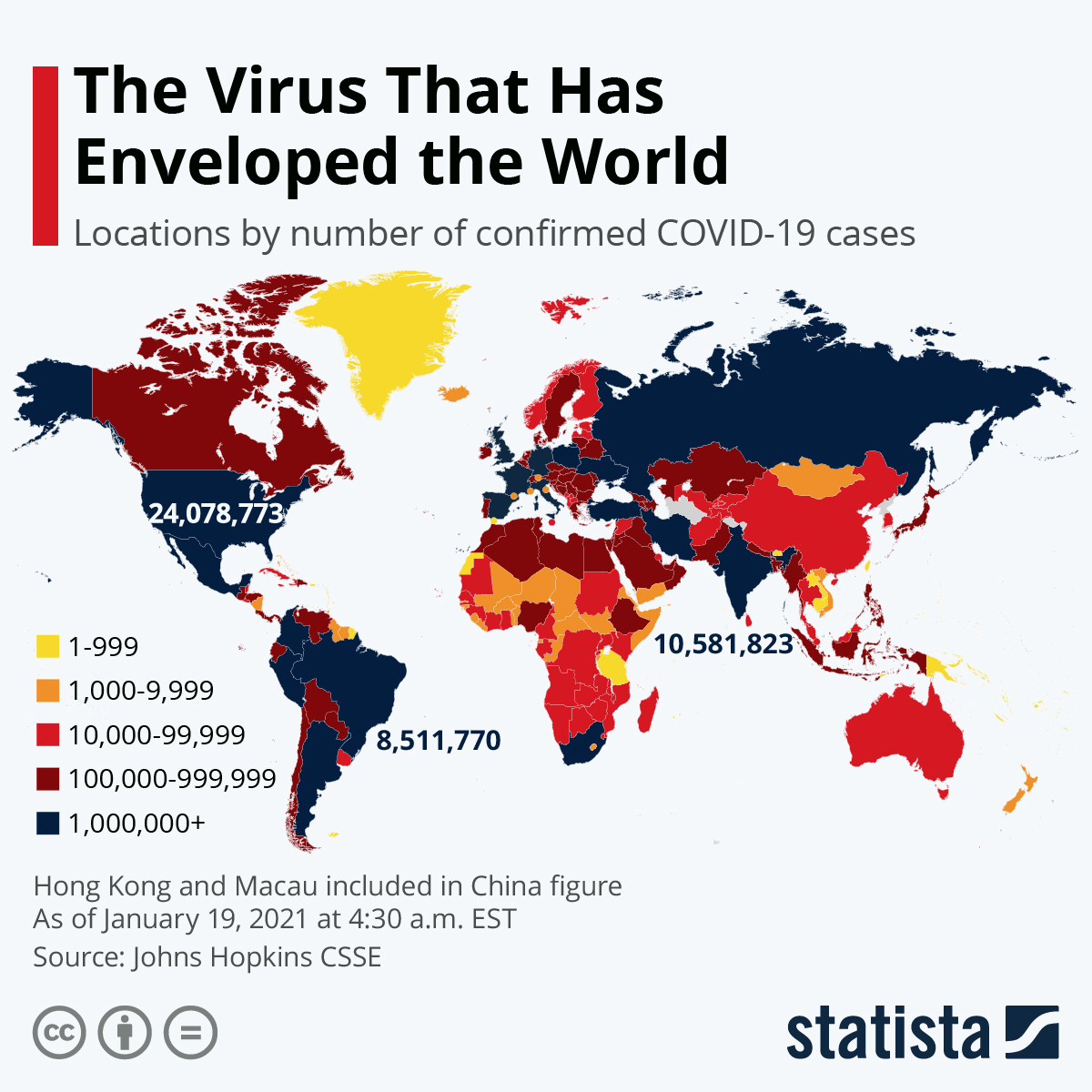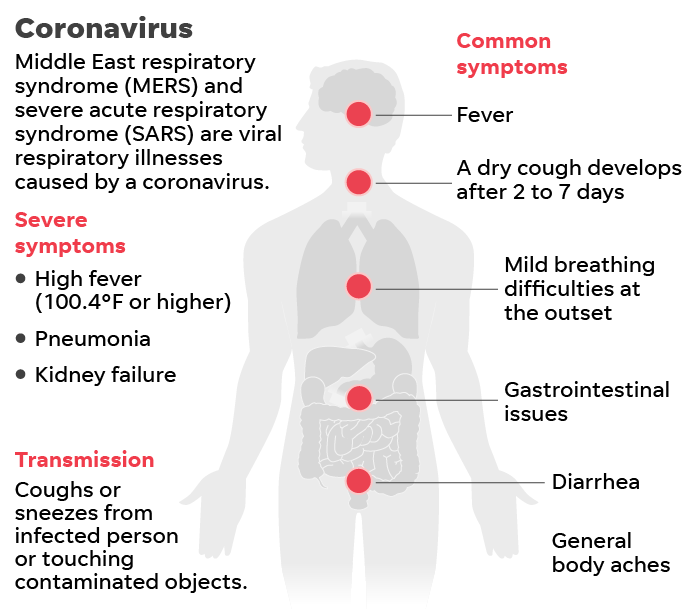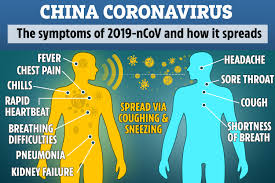2019 Novel Coronavirus (2019-nCoV) Situation Summary and Coronaviruses: Symptoms, Treatments and Variants
Coronavirus cases top 89000 on 3rd Mar 2020
What is Coronaviruses (CoV)
About, Coronaviruses (CoV) are a large family of viruses that
cause illness ranging from the common cold to more severe diseases such as Middle
East Respiratory Syndrome (MERS-CoV) and Severe
Acute Respiratory Syndrome (SARS-CoV). A novel
coronavirus (nCoV) is a new strain that has not been previously identified in
humans.
This Coronaviruses are zoonotic, meaning they are transmitted
between animals and people. Detailed investigations found that SARS-CoV
was transmitted from civet cats to humans and MERS-CoV from dromedary camels to
humans. Several known coronaviruses are circulating in animals that have not
yet infected humans.

Symptoms
Its Common signs of infection include respiratory symptoms,
fever, cough, and shortness of breath and breathing difficulties. In more
severe cases, infection can cause pneumonia, severe acute respiratory syndrome,
kidney failure and even death.
Avoid
Lear, standard recommendations to prevent infection spread
include regular hand washing, covering mouth and nose when coughing and
sneezing, thoroughly cooking meat and eggs. Avoid close contact with anyone
showing symptoms of respiratory illness such as coughing and sneezing.
Follow WHO Guidelines about Coronavirus disease (COVID-19) outbreak
Coronavirus
disease (COVID-19) advice for the public (WHO)
1-Use basic protective measures against the new coronavirus
Public should be aware of the latest information on the COVID-19 outbreak, available on the WHO website and through your national and local public health authority. COVID-19 is still affecting mostly people in China with some outbreaks in other countries. Most people who become infected experience mild illness and recover, but it can be more severe for others. Take care of your health and protect others by doing the following –
2-Wash your hands
frequently
We must regularly and thoroughly clean
your hands with an alcohol-based hand rub or wash them with soap and water.
Why? Washing your hands with soap and water or
using alcohol-based hand rub kills viruses that may be on your hands.


3-Maintain social distancing
Keep maintain at least 1 metre (3 feet)
distance between yourself and anyone who is coughing or sneezing.
Why? When someone coughs or sneezes they spray
small liquid droplets from their nose or mouth which may contain virus. If you
are too close, you can breathe in the droplets, including the COVID-19 virus if
the person coughing has the disease.
Could this be the way to eliminate COVID-19 faster? 🔎 Find out more about our #COVID19 #coronavirus transformation maps
Could this be the way to eliminate COVID-19 faster? 🔎 Find out more about our #COVID19 #coronavirus transformation maps
4-Avoid touching eyes, nose
and mouth
Why? Hands touch many
surfaces and can pick up viruses. Once contaminated, hands can transfer the
virus to your eyes, nose or mouth. From there, the virus can enter your body
and can make you sick.


5-Practice respiratory hygiene
We should make sure about ourselves and
the people around us, follow good respiratory hygiene. This means covering your
mouth and nose with your bent elbow or tissue when you cough or sneeze. Then
dispose of the used tissue immediately.
Why? Droplets spread virus. By following good
respiratory hygiene you protect the people around you from viruses such as
cold, flu and COVID-19.
6-If you have fever, cough and
difficulty breathing, seek medical care early
Rest at home if you feel unwell. If you
have a fever, cough and difficulty breathing, seek medical attention and call
in advance. Follow the directions of your local health authority.
Why? National and local authorities will have
the most up to date information on the situation in your area. Calling in
advance will allow your health care provider to quickly direct you to the right
health facility. This will also protect you and help prevent spread of viruses
and other infections.

7-Stay informed and follow
advice given by your healthcare provider
Be in touch informed on the latest developments about COVID-19.
Follow advice given by your healthcare provider, your national and local public
health authority or your employer on how to protect yourself and others from
COVID-19.
Why? National and local authorities will have
the most up to date information on whether COVID-19 is spreading in your area.
They are best placed to advise on what people in your area should be doing to
protect themselves.
8- Protection measures for persons who are in or have recently visited (past 14 days) areas where COVID-19 is spreading
1. Follow the guidance
outlined above.
2. Stay at home if you begin
to feel unwell, even with mild symptoms such as headache and slight runny nose,
until you recover. Why?
Avoiding contact with others and visits to medical facilities will allow
these facilities to operate more effectively and help protect you and others
from possible COVID-19 and other viruses.
3. If you develop fever,
cough and difficulty breathing, seek medical advice promptly as this may be due
to a respiratory infection or other serious condition. Call in advance and tell
your provider of any recent travel or contact with travelers. Why? Calling
in advance will allow your health care provider to quickly direct you to the
right health facility. This will also help to prevent possible spread of COVID-19
and other viruses.
Click here for corona virus current situation worldwide




Connect With Us